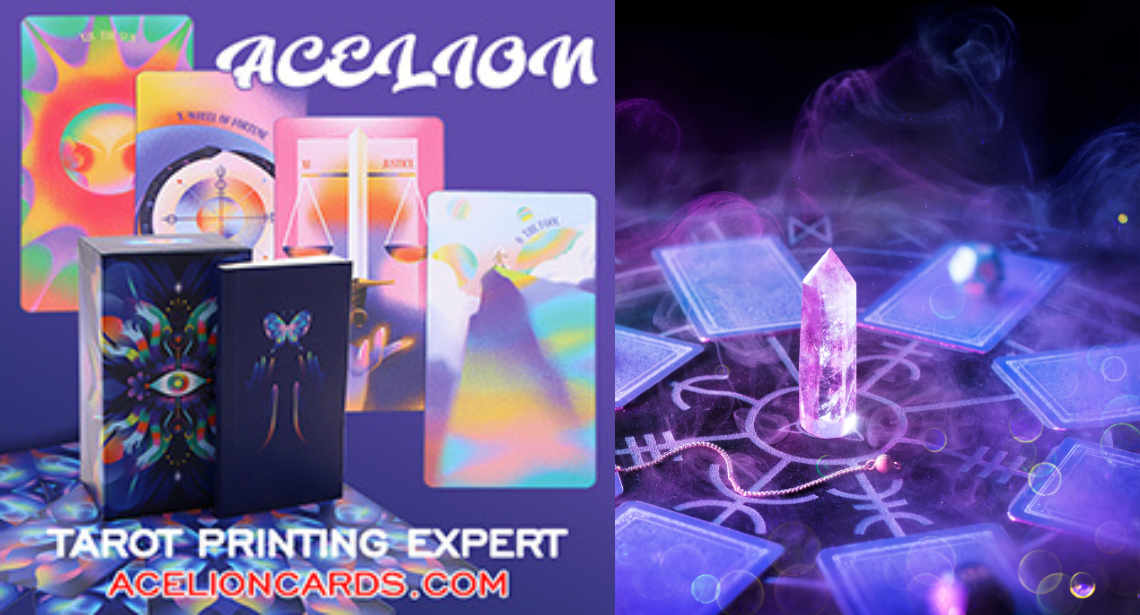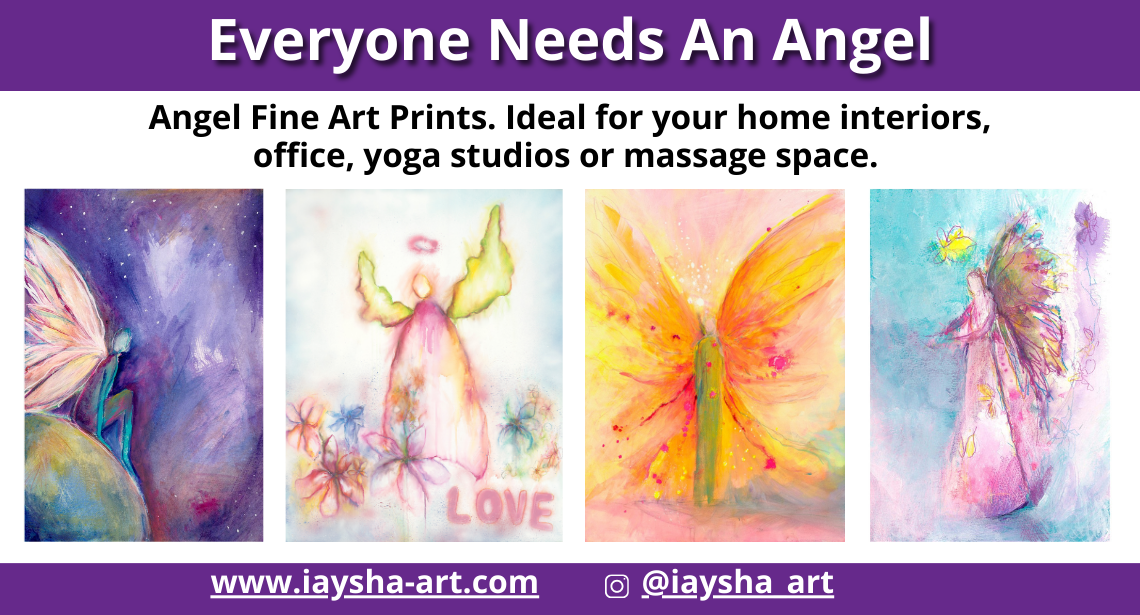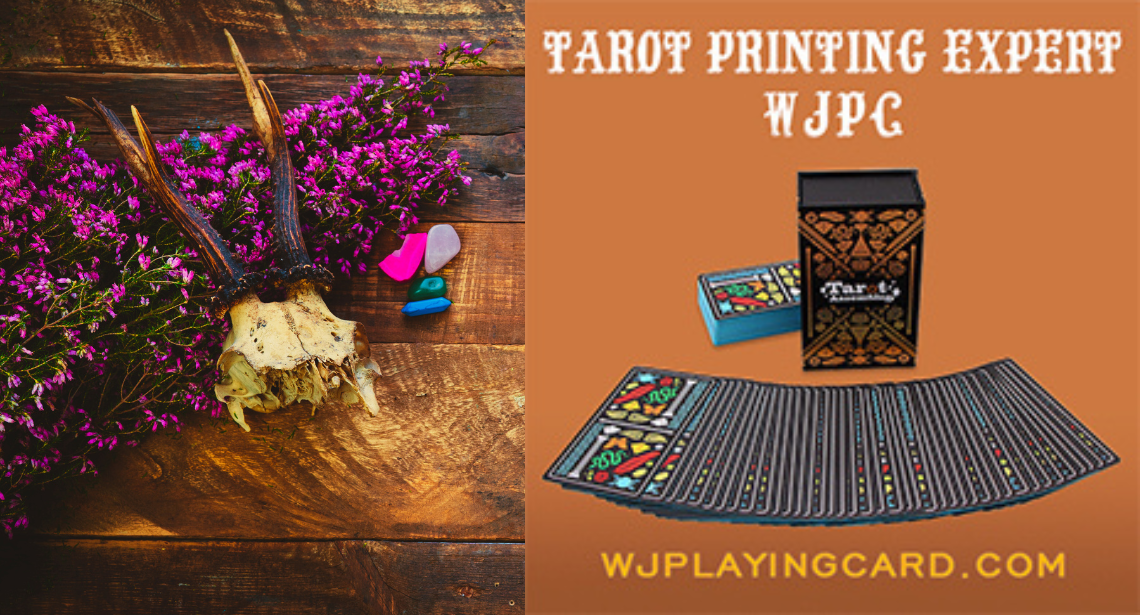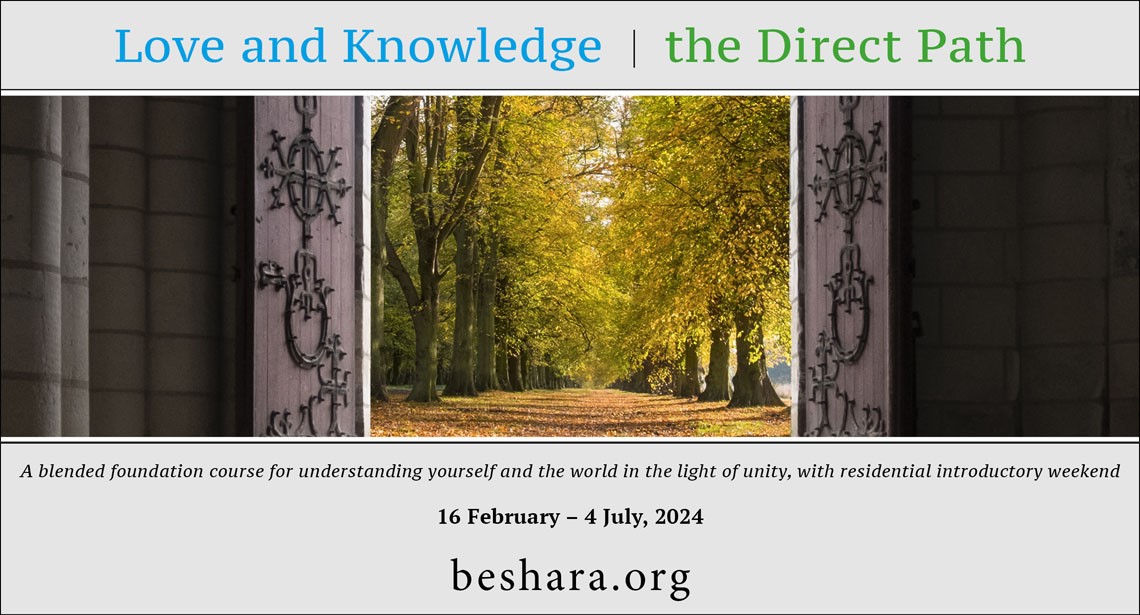When The Hanged Man, Death, The Tower or The Devil appear in a Tarot reading, people are often fearful of their implications. Yet there’s no need for dismay. These major arcana cards show us how we should move forward...
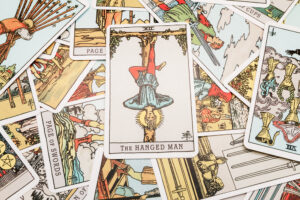
The Hanged Man
Firstly, whilst admittedly tied and hanging upside down, The Hanged Man does not look too distressed; indeed, he seems quite relaxed in this position, so he is reminding us to accept a slower pace in life for a while and not get worked up over minor matters. Also note the nearby eagle, suggesting that we can view things from a different perspective. Many of us are stressed by the busy-ness of our daily lives these days, as if forever on a hamster wheel that never moves forward. The Hanged Man may arrive to prod us gently into reflecting on what we could do to allow ourselves some relaxation, some time to identify our true desires.
We have so many things vying for our attention, don’t we? But if we try to do too much in the day without also allowing ourselves some peace, then we are continuously ‘ploughing the furrow but not growing anything’ within. Life becomes dull with little joy or satisfaction. Moreover, our disengaged senses can cause us to misjudge situations. Dr Wayne Dyer, author and spiritual teacher, has said, ‘When we feel confused about what we should do to feel inspired, it’s time to go to a quiet place.’
The Hanged Man in a Tarot reading has the same message, that managing our lives without incorporating relaxation and quiet along the journey is not conducive to happiness and contentment. ‘Down time’ allows us to be more nurturing towards ourselves, to engage our senses and find space to be who we are. Looking beyond the surface of daily routines helps us to make healthier life choices.
Yes, sometimes we may feel guilty about spending a few hours reading in a comfy armchair or going for a walk in the park instead of doing household chores or working. But it’s a valid question: why
shouldn’t we read books, why
shouldn’t we stroll along in nature and feel good about it? The Hanged Man gently steers us towards a different, liberating perception of how life can be lived.
The Death Card
Our lives transition through cycles from the moment we are born. We evolve every day simply by learning new things that guide us on our paths. The Death card relates to these cycles. It depicts Death being presented with gifts, as if in gratitude; but why express gratitude to Death?
Each cycle of our lives teaches us lessons – if we are willing to learn - so waving goodbye to a particular period should leave us grateful for the wisdom we have gained. Gratitude is a key, able to open doors to the abundance of the universe and change our perspective in a positive way. Suppose I had a habit or addiction that for years felt comforting, but later caused social or health problems for me and others. If I then decide to change this behaviour, with others’ help and my own willpower, I will feel stronger and more confident for my achievement. Therefore I should express gratitude for this new understanding of myself - that I can achieve what I set my mind to – and I can be thankful for the new life cycle beginning and even for that old, unhealthy life cycle that brought me to better ways.
This is where the Death card is relevant: for finishing a project, leaving one job for another, withdrawing from a dysfunctional group of friends or selling our home to live elsewhere. The universe is energy and we are forever moving and flowing with the cycles of our lives. The Death card describes endings
and beginnings, because as one door closes another one opens and welcomes in new and exciting energies.
The Tower
The Tower card shows a building struck by lightning. Universal energies are at play and changes are afoot. Is this disastrous and will all we have created in our lives come tumbling down? Much depends on how adaptable we are to change and whether we are too comfortable with our steady routines. True, The Tower usually crops up when we least expect a change, whether we adapt well or badly, and it can be the sort of change that arrives at an inopportune time, when we are ill-prepared. It may potentially be overwhelming because external circumstances beyond our control can be involved, making us feel buffeted and unable to gain a footing from which to rally.
It is often difficult to understand at the time, but such situations can really be ‘blessings in disguise’, helping us to change our very energetic vibrations. Looking back later, we usually know deep down that change had been needed in our lives but we had done very little about it, carrying on with familiar behaviour because it was the easy option. We may even have planned to ‘deal with things’ but still continued to procrastinate. Inevitably, then, the potential grew for the arrival of enforced change, bringing even greater upheaval and giving us little choice but to work through it.
It is only human nature to hold on to familiar possessions, friendships, relationships, habits, homes and jobs - even when we are aware deep inside that they no longer bring us happiness and peace, and even weigh us down with their energetic baggage. If we are able to recognise that we are holding on to these stale energies from a sense of familiarity, duty or habit, it is the first step to acknowledging that newer energies are waiting for us around the corner. Facing up to this new insight, we can begin to let go of and strip away the old, to attract positive new energy in its place.
The Tower reminds us of Feng Shui and the need to declutter our lives from stagnant jobs, dysfunctional dynamics and habitual patterns, to detoxify our lives and cleanse our energy, enabling us to move forward in life feeling lighter and unencumbered.
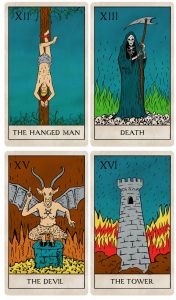
The Devil
The Devil card always seems frightening but in fact it is usually telling us that we are our own worst enemy; it is our own inner demons that prevent or deflect us from our natural path. The imagery depicts a couple with chained nooses around their necks, held by the Devil. It is as though they are dancing to another’s tune and not their own. How familiar is this for many of us, always putting the needs of others before our own?
Of course it is good to be of service but not if it is to the detriment of ourselves. We serve nobody if we always allow our needs to come last or not catered for at all, so that we become weakened. Many of us allow others to undermine our confidence, whether in a work situation or personal life, and we beat ourselves up for even considering our own aspirations. The Devil card can be suggesting to us that we might prune from our lives those - ‘friends’, colleagues or even family members - who are not uplifting or encouraging, who suck us dry and deflate our ideas. We are reminded to set our own boundaries with others so we can move forward with a more positive frame of mind, seeking out genuinely encouraging and inspiring people.
The Devil card also reminds us to make more effort with ourselves, to be more positive about our own aspirations, to develop our own confidence. Many of us, for example, have the inner demon that’s always telling us not to try anything new because “It’ll never work” or “It’s too much trouble.” The Devil card is pointing to that demon and suggesting that perhaps after all we might adopt a more cavalier approach, trying new things, have a go and see what happens… Even if things do not work out entirely as planned, we shall learn lessons that are never wasted and which will guide us in making wiser choices and decisions in future.
However, we do not have to wait for one of these ‘scary cards’ to turn up in a Tarot reading! We can consider the lessons of these major arcana cards
now and start putting in place the changes of direction we recognise are necessary, having evaluated our life choices. This way, we’ll have the time to prepare the groundwork and lay foundations for making kinder choices for ourselves, bringing more self-compassion into our lives. We can empower ourselves to change the old stories before external circumstances force us to do so. If we can do this, our lives should become more focused, rewarding, energised and contented.
Find Out More:
Sandra Bray is an author and Holistic Therapist from Helston, Cornwall. Facebook @ Odd Days of Heaven. Odd Days of Heaven by Sandra Bray (£8, Local Legend) describes almost 200 suggestions sure to lift your spirits – or even change your life.
local-legend.co.uk













